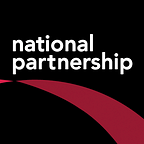This Mother’s Day, Remember Mothers Need Paid Leave Throughout Their Lives
The national call for paid leave is growing louder every day. It’s encouraging and inspiring to see the broad recognition — regardless of political affiliation, gender, age or geography — that the United States has a serious paid leave problem. Eighty-two percent of voters now say it’s important for the president and Congress to consider a federal paid family and medical leave law.
But too often, when we talk about paid leave, we think first about the fact that the United States is the only industrialized nation in the world without a paid maternity leave policy. It’s easy to jump to the conclusion that the issue pertains only to new moms or new parents, but the need for paid leave is universal, spanning all working people’s lives, including the lives of mothers. And it’s about more than welcoming a new child; it’s about caring for your other family members and your own health too.
Of course, there is a dire need for new parents to have access to paid leave. At the National Partnership for Women & Families, we hear stories all the time about expecting moms struggling to get the time they need. Samantha from Ohio, for example, went to work sick to save time for her maternity leave and the doctor’s visits she knew would spring up in her baby’s first year.
Similarly, Jennifer had to cobble together vacation and sick time to be able to take leave when her son was born, only to be forced to return to work earlier than her doctor advised. She was then nearly denied time off to seek help for postpartum depression. The experience led her to move her family to California, in part, because it is one of just three states in the country with a paid leave law (New York and Washington, D.C., recently approved laws too, but they aren’t in effect yet).
Despite the challenges they faced, both Samantha and Jennifer consider themselves lucky — and sadly, they’re right. Eighty-six percent of working people in the United States don’t have paid family leave through their jobs, and nearly one-quarter of new moms return to work within just two weeks of giving birth. Only 35 percent of working mothers are both eligible for and can actually afford to take the unpaid leave provided by the Family and Medical Leave Act.
Those numbers alone are staggering, but again, there is more to the story than the care of new babies. Remember, “mother” is both a noun and a verb. Mothers also mother their spouses and partners, their adult children, and their own mothers. And sometimes mothers need mothering too. Yet more than 60 percent of U.S. workers don’t even have access to personal medical leave through an employer’s temporary disability insurance program to deal with their own serious illnesses.
So how are mothers supposed to become mothers, provide for their families as the key breadwinners and caregivers they are, or get the care they need throughout their lives without access to paid family and medical leave? For most, the answer is relying on the “boss lottery” and good will of an employer, cobbling together other types of leave, or even leaving the workforce altogether.
Take Terry from Tennessee, who had to trade shifts at work so she could be home during the day to care for her mother who was dying from cancer while still keeping a roof over the heads of her three small children. Or Barb in Wisconsin, who had to figure out how to stay afloat while taking unpaid family leave and exhausting her vacation and sick days to care for her dying father while arranging long-term care for her mother who was losing a battle to dementia.
Marisol from Virginia counts herself among the “lucky” ones because her employer allowed her to telework so she could help her mother recover from a stroke. She couldn’t afford to lose her job or full-time pay, but she also couldn’t imagine not caring for her mom. And Nanette from Florida says she would never have been able to pay bills and care for her daughter had she not had access to paid leave through her employer when she was undergoing breast cancer treatment and multiple surgeries.
Whether it’s recovering from childbirth, welcoming a new child, caring for a sick loved one or getting life-saving treatment, it’s simply unacceptable that millions of hardworking mothers and people across the country are forced to make impossible choices between their caregiving responsibilities and their financial security because they don’t have access to paid family and medical leave.
This Mother’s Day, I hope you’ll join me in calling on Congress to support mothers and all working people throughout their lives by passing the Family And Medical Insurance Leave (FAMILY) Act. The FAMILY Act is the only federal paid leave proposal on the table that would create a comprehensive paid leave program to help people like Samantha, Jennifer, Terry, Barb, Nanette and the many others who have caregiving needs and responsibilities.
To learn more, visit NationalPartnership.org/PaidLeave.
